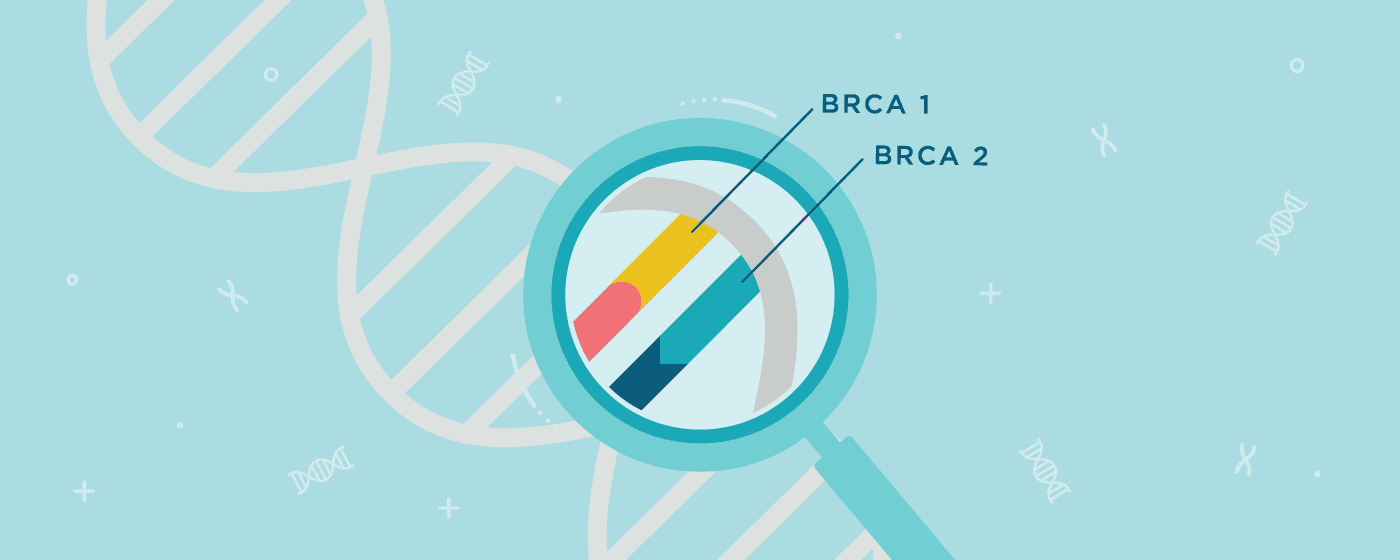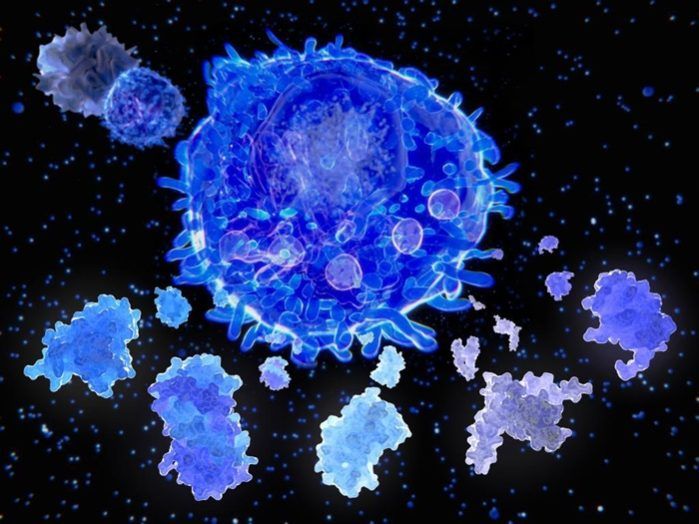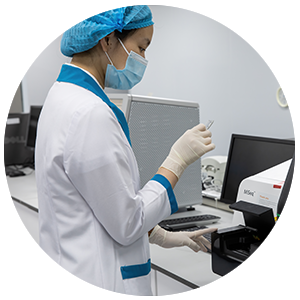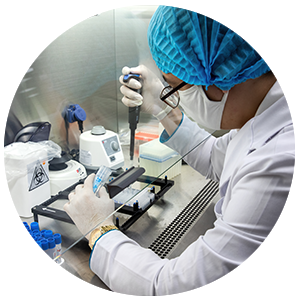Real-time PCR test for group B streptococcus (GBS)
What is Group B Streptococcus (GBS)?
Group B streptococcus (also known as Group B streptococcus - GBS) is a bacteria that resides in the digestive tract and genital tract of women. GBS usually causes no symptoms in healthy carriers, but can cause invasive infections in newborns and people with weak immune systems.
.
Why should we care about Group B Streptococcus (GBS)?
+ Normal people: GBS can cause urinary tract infections.
+ Pregnant women: GBS can cause infectious complications during pregnancy: blood infection, amniotic infection, urinary tract infection, premature birth, postpartum uterine inflammation or stillbirth.
+ In newborns: Children are infected with GBS from their mothers during childbirth. Children infected with GBS will manifest the disease depending on whether the infection begins early (0-7 days old) or late (1 week - 3 months old).
.
Stages of onset of Group B Streptococcus (GBS)
EARLY STAGE
a. Cause: Infection during childbirth.
b. Early stage is less than 7 days after birth, usually between 12 - 48 hours.
c. Early stage GBS causes:
- Sepsis (80%)
- Respiratory failure
- Pneumonia, meningitis, some children, even though they recover after treatment for meningitis caused by GBS infection, still have serious sequelae.
- High mortality rate, 1/10 infected children die (even with aggressive treatment)
*The rate of GBS etiology in children under 1 week old with infection is very high (77.5%)
.
BELATED STAGE
a. Cause: infection during childbirth, through the digestive tract or from the breastfeeding or hygiene environment.
b. Belated from 1 week -> 2 - 3 months of age.
c. Belated stage of GBS causes:
- Meningitis
- Septicemia
- Joint infection
- Osteomyelitis
- Pneumonia
- Death (5%)
*The incidence of late-onset GBS is low.
*One-half of children who survive late-stage GBS infection have permanent physical and mental sequelae, and one-eighth have severe meningitis. It is necessary to screen for GBS before 37 weeks of gestation and use prophylactic antibiotics if the mother is infected with GBS.
.
Who should get tested for Group B Streptococcus (GBS)?
Group B Streptococcus testing should be done if:
- All pregnant women at weeks 36-37 (for singleton pregnancies), weeks 32-34 (for multiples) are recommended to be screened for GBS. If GBS infection occurs, measures to prevent prenatal complications will be taken to ensure maximum safety for both mother and baby.
- Most people infected with GBS, including pregnant women, have no symptoms. Therefore, pregnant women should proactively perform screening tests even when there are no signs of abnormal health. A few cases will cause symptoms of urinary tract infection such as: pain, burning sensation when urinating, frequent urination, opaque urine,...
.
Group B Streptococcus (GBS) Testing at Phacolab
1. Specimen: vaginal-rectal swab.
*Pregnant women can have the sample taken during prenatal check-ups.
2. Implementation method: Real-time PCR.
3. Accuracy: 100%
4. Results return time: after 24 hours from the time of sample receipt.
.









